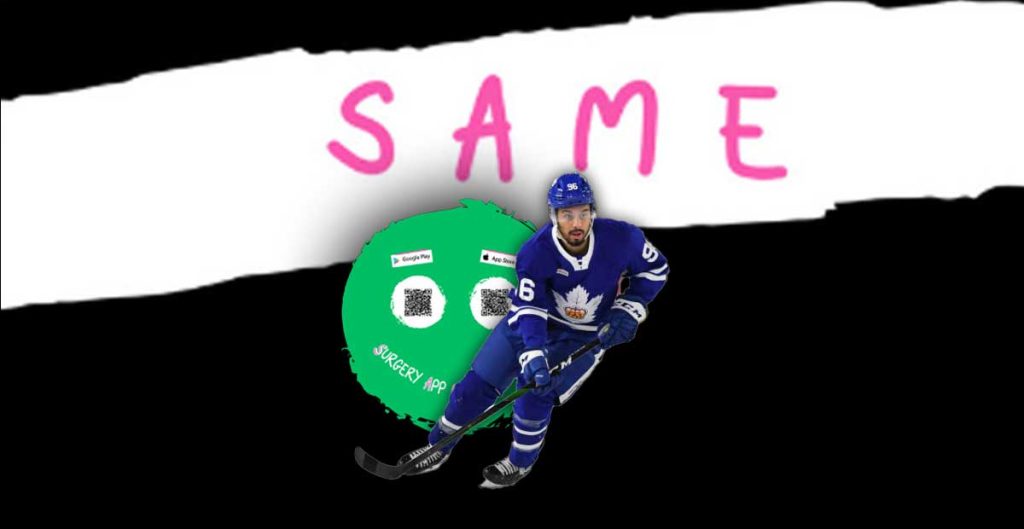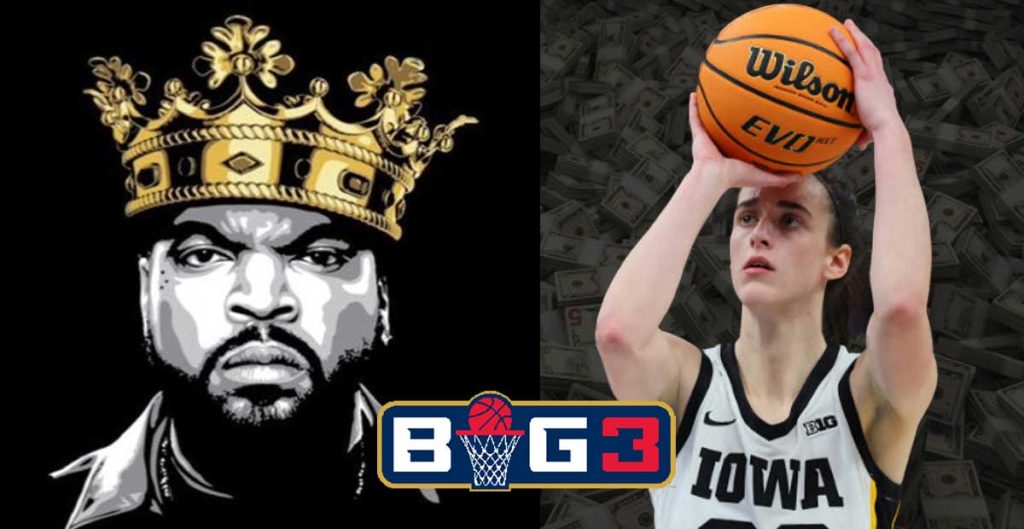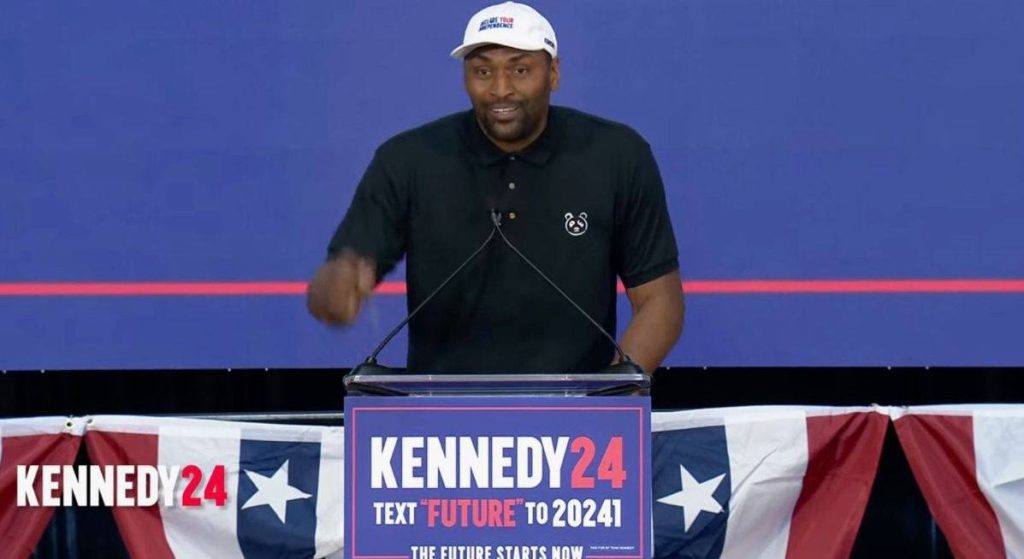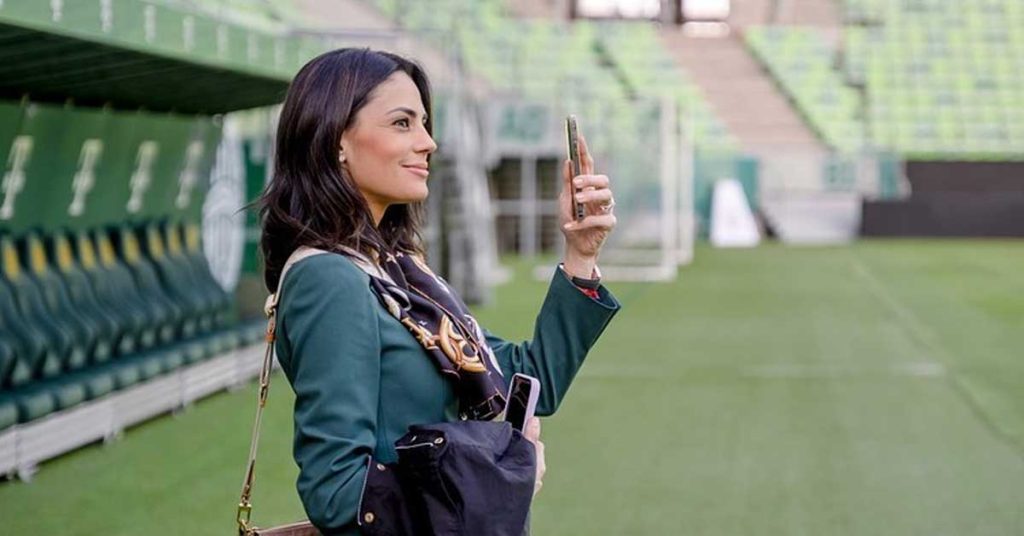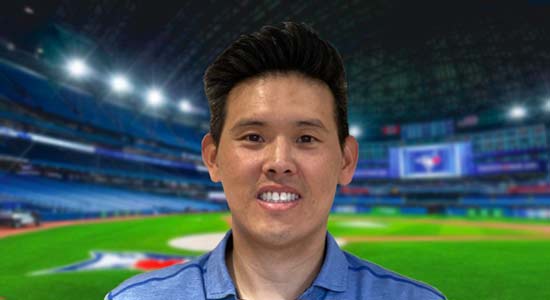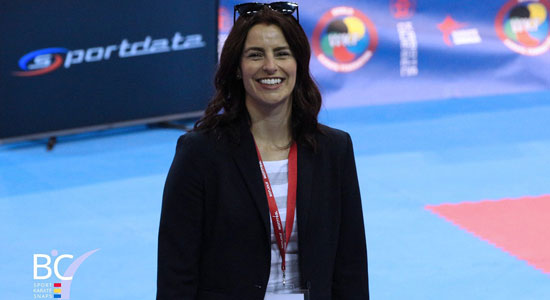
1 on 1 with Alexandra Roy | Program Manager | Karate Canada

At Karate Canada, our people come first. We have about 16,000 registrants across the country who vastly vary in age and level and we offer them structure through policies and procedures.
Alexandra Roy
Program Manager
Karate Canada
The Latest
Jontay Porter Banned From The NBA For Life
Iowa vs LSU: A Landmark Moment in Women’s College Basketball
Former NHLer Josh Ho-Sang Now A Rapper
Metta World Peace Endorses RFK Jr. for President 2024
1Tell us about your role as Program Manager for Karate Canada. What does a typical day look like for you?
My main role as Program Manager for Karate Canada (KC) involves developing, managing and evaluating various programs within the Federation.
My portfolio currently includes programs related to coach and official development, safe sport, gender equity as well as para-karate. I work with multiple volunteer committees to offer educational and developmental opportunities to our members and registrants and help grow the various programs within KC.
A typical day is often very diverse and usually involves dealing with numerous projects simultaneously. For example, I could be on call with our Medical Committee regarding the development of a Concussion Protocol, then planning a National Referee Clinic followed by a brainstorm on how to increase the number of female coaches within the karate community.
Prioritizing and time management are key skills within my position.
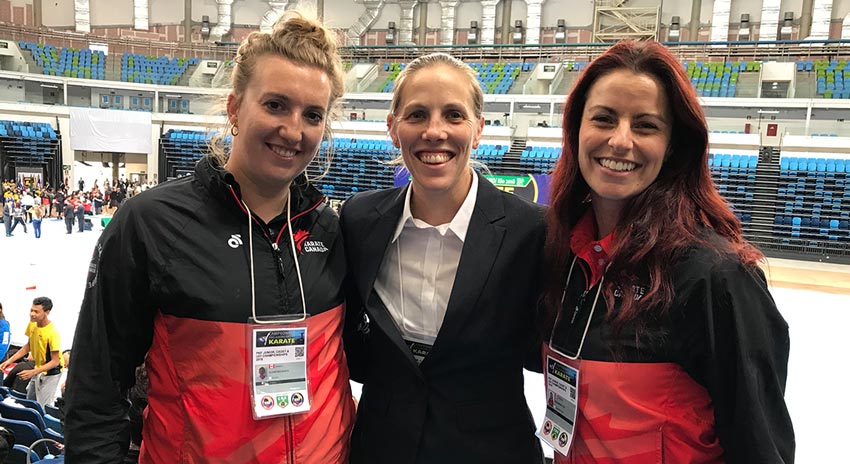
2How much do you focus on growing karate on a wider scale as Program Manager? What is Karate Canada doing to bring awareness and grow the sport in Canada?
At Karate Canada, our people come first. We have about 16,000 registrants across the country who vastly vary in age and level and we offer them structure through policies and procedures.
We provide opportunities for training and/or certification for coaches, officials and sports administrators, which ultimately make our sport stronger.
We also organize competitions such as the National Championships. We try to change host cities for this event so we can provide legacies for multiple provinces/territories.
We also occasionally hold international events such as the 2015 Senior Pan American Karate Championships in Toronto and more recently the 2019 Montreal World Karate Federation Series A.
We select and support the Junior and Senior National Teams, including para-athletes. Finally, we promote the sport by disseminating news, results and information about Karate via our different platforms.
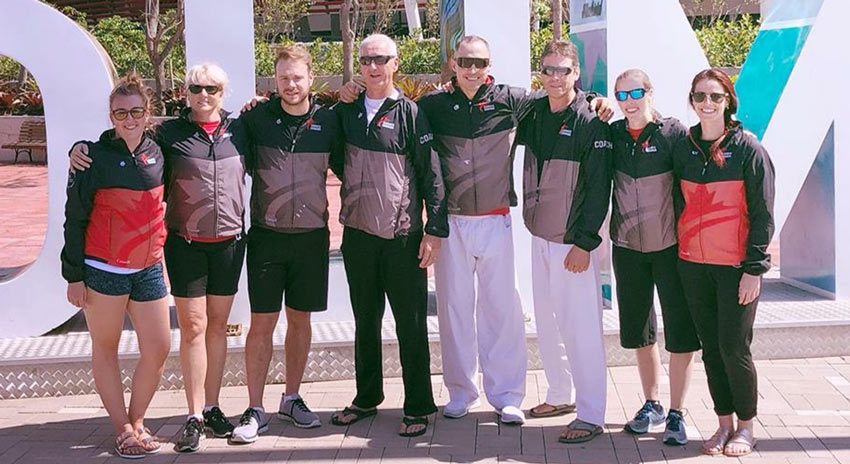
3You have many responsibilities within Karate Canada including developing the content and implementation of various programs and events. Tell us about your approach to enhancing and putting such programs/domestic events into practice.
We work in partnership with Sport Canada and all our stakeholders to establish successful and relevant programming. The different committee members I work with are crucial in the development and implementation of our various programs.
They are the experts and the ones feeling the pulse of our community, on the field coaching, facilitating, officiating, etc.
Our key volunteers directly connect us with our registrants, just like I act as the liaison between them and the Federation.
Each committee establishes their objectives yearly and we hold multiple meetings within the year during which we discuss what initiatives we need to put forward to attain our objectives as well as what could be improved and how for the benefit of our registrants.
My role is then to make it happen, work on the logistics and ensure it aligns with the rest of our programs.
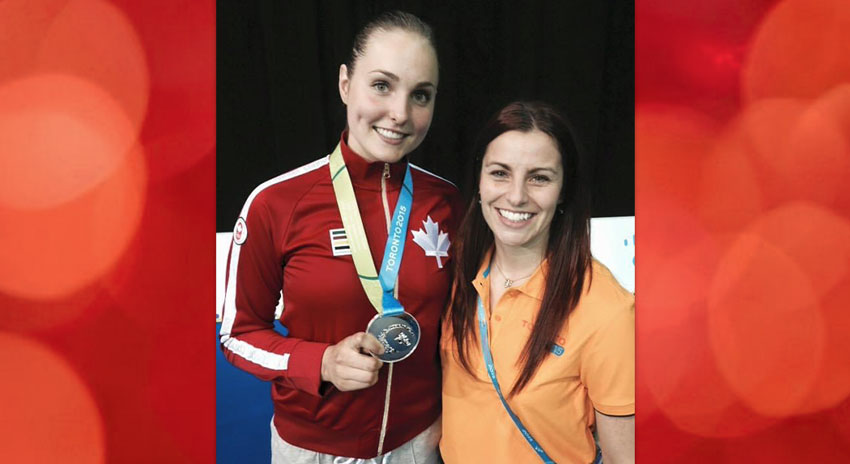
4Amidst the COVID-19 pandemic, karate is a sport that can be practiced safely! How did you go about implementing the Return to Karate Guidelines and working with various stakeholders to get them back up-and-running?
As sports were slowly allowed to resume in various parts of the country, Karate Canada put together a special task force to establish guidelines in order to help our community return safely to the practice of karate.
The group was lead by a member of our Medical Committee and we tried to include a variety of people who would use this document (High-Performance Director, coaches, club/dojo owners, etc.) to contribute.
We reviewed our International Federation’s policy as well as other National Sports Organizations' work and came up with high-level recommendations to mitigate risks when reopening clubs/dojos and restarting training.
Each province/territory and municipality might be dealing with different governmental restrictions, therefore we decided to use a stage approach and let everyone proceed with what was required/recommended for their region.
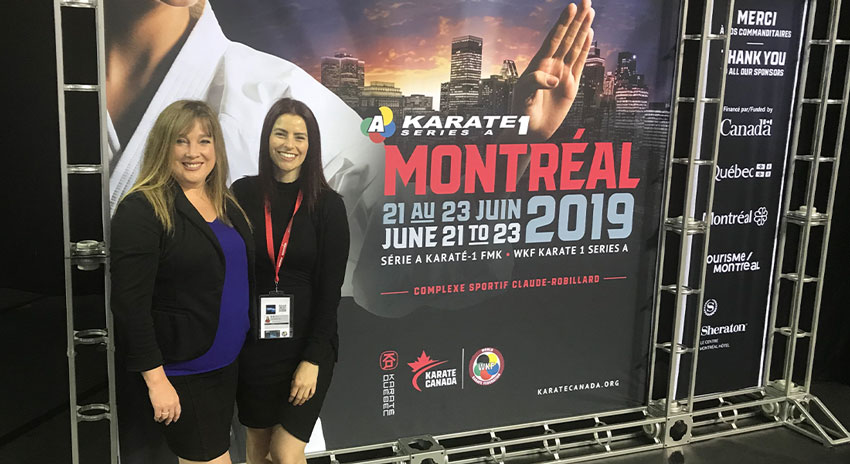
5Karate was set to debut in the 2020 Tokyo Olympics. How was Karate Canada gearing up to send athletes if they qualified for the 2020 Tokyo Olympics? Additionally, how has the re-scheduling changed your role and plans for the year?
Everyone was and still is very excited about karate making its Olympic debut at Tokyo 2020.
Karate Canada, with the help of Own the Podium and Sport Canada has been providing direct support to targeted Olympic hopefuls and hired a part-time High-Performance Director (HPD) to help manage our high-performance programs.
Although the rescheduling of the Games has not directly impacted my role within the organization, our HPD and HP Committee certainly have their work cut out for them. The pandemic hit in the middle of the Olympic Qualification Process and we were not able to hold our National Championships so a lot of criteria and nomination procedures have to be revised.
Since the future is still very unknown, multiple scenarios have to be developed and plans are constantly changing and evolving.
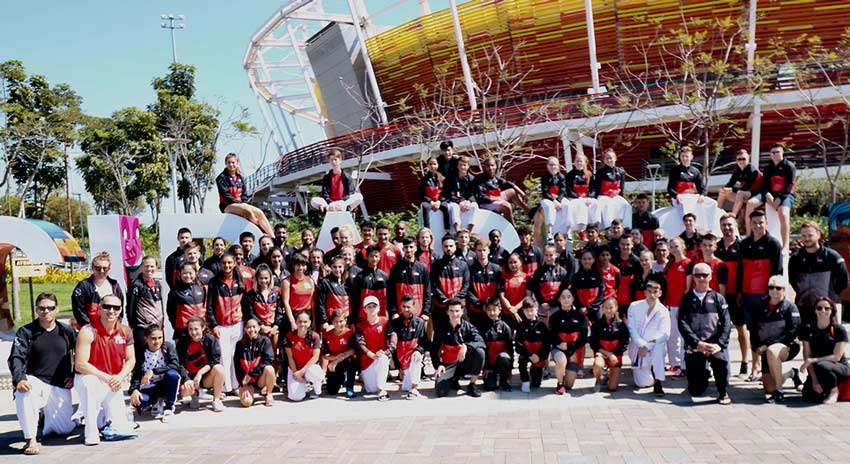
6Finally, as part of your role, you are occasionally tasked with being Team Manager for certain international competitions. What makes a good leader in a role like Team Manager?
A good Team Manager needs good communication skills and has to be able to adapt quickly. I was fortunate enough in the past years to accompany our team to the Junior Pan American Karate Championships in Brazil and Ecuador.
We usually go with a full team, which includes about 80 athletes from 12 to 20 years old (plus their parents or a responsible adult) as well as coaches and other support staff.
Our Junior Team can change quite a bit from year to year, so for a lot of athletes (and parents), this will be their first international competition. It is very important as the Team Leader to communicate what you are expecting of everyone and to give them an idea of what they can expect (environment, language, training, meals, hotel, curfew, etc.).
Coaches and support staff also need to be included in the discussion so everyone is on the same page and works as a team.
Although we try to plan and account for everything, it is inevitable that things will change and you have to be able to adapt quickly and turn your focus on finding solutions. When there are changes, you have to make sure to communicate with all the different groups so everyone is aware.
[get_current_post_author_pic_and_name]
In her role as Program Manager for Karate Canada, Alexandra Roy develops, manages and evaluates the various programs that fall under the Federation. This means Alexandra oversees coach and official development, safe sport, gender equity, and para-karate. Alexandra's role is extremely important as she is a key player in helping Karate Canada grow in terms of participation rates and expanding programs. Alexandra and Karate Canada put their people first and consider the wants and needs of stakeholders when it comes to policies and procedures. With karate on the rise, it is no surprise that the sport will soon be making its Olympics debut! Although the 2020 Tokyo Olympics have been postponed, we cannot wait to see karate on the Olympic stage and wish Alexandra and Karate Canada the best as they prepare!




